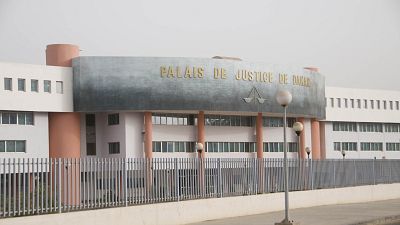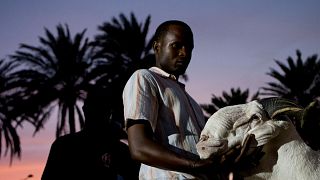Senegal
A group of Senegalese organizations from the civil society and citizens filed Monday (Feb. 06) a complaint with the Dakar court to ask the courts to take up the Covid-19 mismanagement case.
The move by « Sunu’y milliards du ress », « our billions will not disappear » collective follows the publication of a report by the Court of Auditors at the end of December which pinned the management of the Covid response funds in 2020-2021.
The audit of the Court of Accounts of Senegal studied the expenditures made in 2020 and 2021 on the "Response Fund against the effects of Covid-19". The budget amounted to more than 740 billion CFA francs (more than 1.1 billion euros), financed by donors and the state, according to this report published on the website of the audit institution attached to the Presidency.
"The total amount of expenditures (made by various ministries and) not related to covid-19 amounts to 19,727,096,727 CFA francs" (about 30 million euros), the document revealed.
According to RFI journalists, the complaint demanding the opening of a judicial investigation targeting the people mentioned in the report of the Court of Auditors.
The complaint will be filed with the public prosecutor and the "Sunu’y milliards du ress" collective invites citizens to file the same complaint individually.
During his address to the nation on New Year’s Eve, president Macky Sall vowed justice will follow its due course.
The Dakar prosecutor said Monday preliminary investigations had been opened, vowing to take to court all those involved in the funds’ mismanagement.
Many officials in sub-Saharan Africa are suspected of misappropriating or mismanaging funds dedicated to fighting the Covid-19 pandemic, including in Ghana, Cameroon, Guinea and South Africa.
Irregularities in Togo
In Togo, the Court of Accounts published on late January its report following the audit of the management of state Covid.
The COVID-19 Response and Solidarity Fund (FRSC) was endowed with 400 billion CFA francs, which can to be used over several years. It is distributed as follows: health response (110 billion); resilience (110 billion) and economic recovery (180 billion).
The bodies which were audited are ministerial departments which received, resources from the FRSC and used them to implement expenditures for the response, resilience or economic and social response, resilience or economic and social measures.
Among irregulars the Court of Accounts found that some hotels and hostels that were to be requisitioned by the tourism minister in order to house Covid-positive patients had been shortlisted by prefects. On the ground, these structures are either hostels, villas -belonging to local officials- and dwellings, camps, lodges, reception centers with some unsuitable for proper accommodation.
The report also noted that "almost all transactions" for the provision of funds and the payment of expenditures under the FRSC were made in cash, regardless of the amount, which sometimes run into hundreds of millions of CFA francs, in contravention of the regulatory payment methods that limit such payments to 100,000 CFA francs.
In addition to that, "remuneration with no legal ground" was paid to committee members and certain so-called support staff.
"The individual monthly amounts of these bonuses allocated to both civilian and military personnel vary from 50,000 CFA francs to 1,100,000 CFA francs", the report reads. Adding no "indication of the basis for these variations" was provided.
According to the Institute for Security Studies (ISS), widespread corruption during the pandemic further worsened the effect of COVID-19 on Africa’s economy.












01:01
Trial of DRC's former Justice Minister Constant Mutamba postponed for two weeks
01:11
Legal complaint targets family of DRC's Félix Tshisekedi for looting
00:58
Senegalese PM Sonko says international order is shifting to a more balanced, multilateral world
01:00
Pix of the Day: July 3, 2025
00:29
At least 7 people killed during recent anti-government protests in Togo
01:06
China, Senegal pledge stronger strategic partnership during Beijing talks